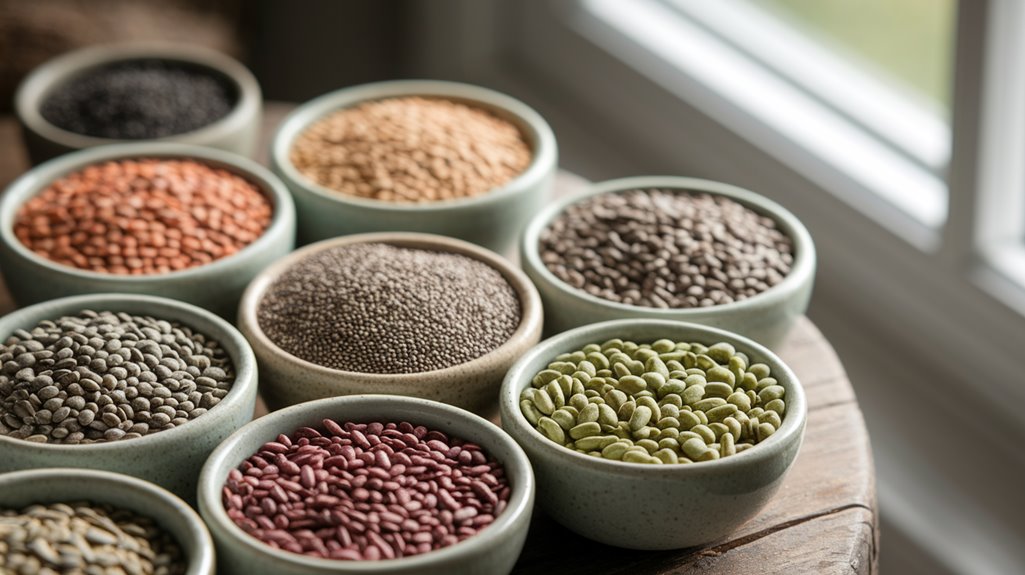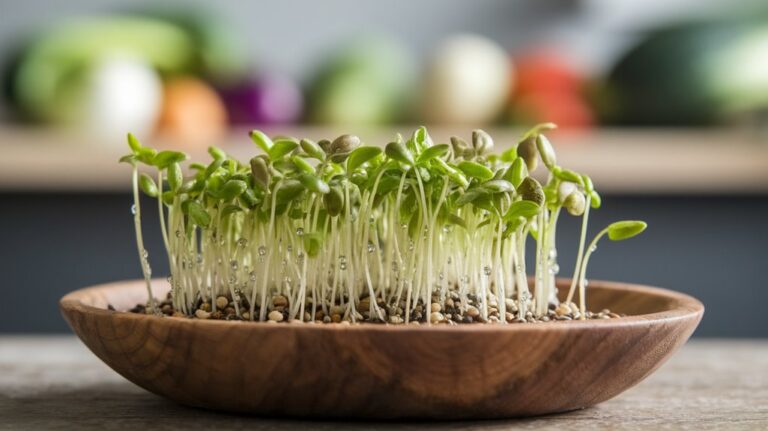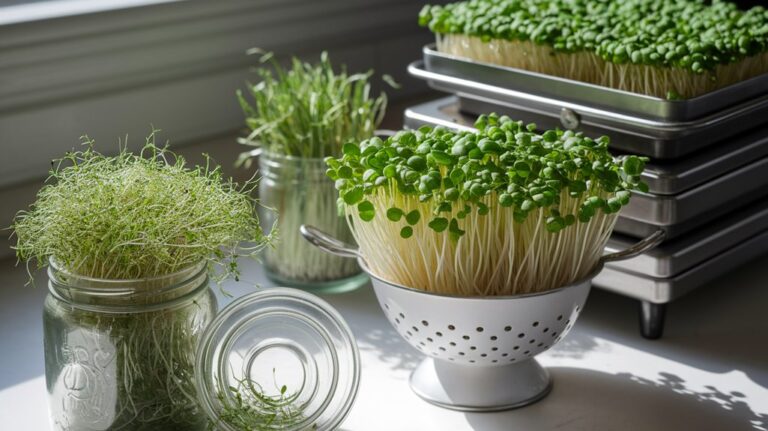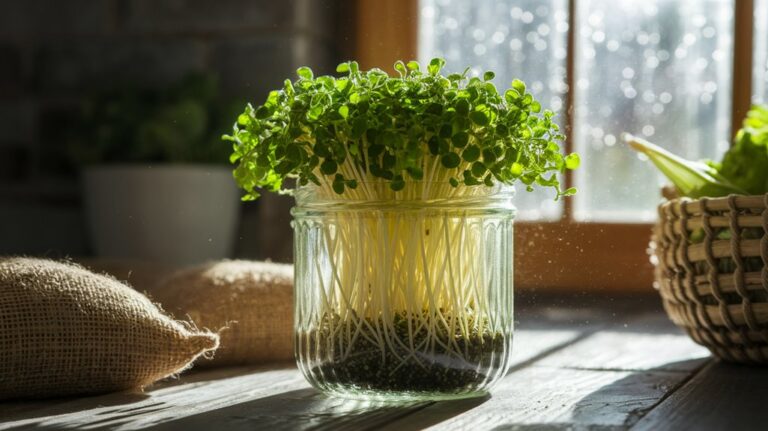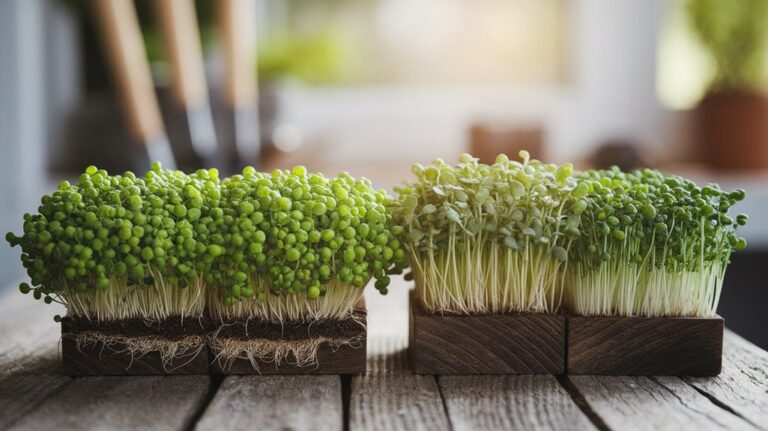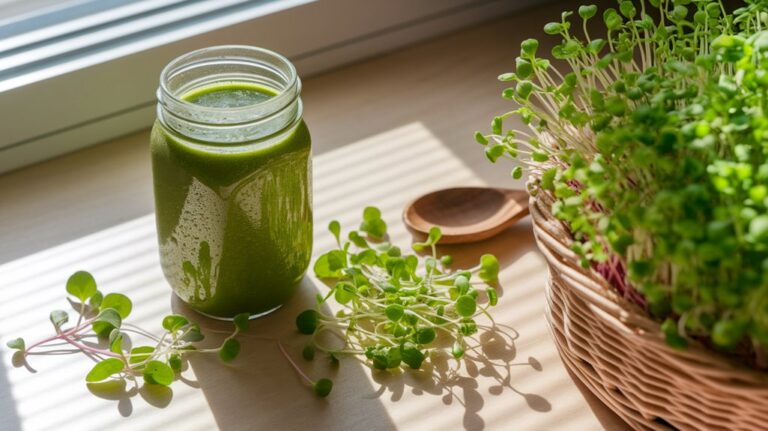Best Seeds for Sprouting at Home
When I think about the best seeds for sprouting at home, alfalfa, broccoli, radish, mung bean, and lentil seeds come to mind. Alfalfa is nutrient-rich, while broccoli provides antioxidants. Radish seeds give a zesty flavor, and mung beans add crunch with great versatility. Finally, lentils are protein-packed. Each seed offers unique benefits and flavors. If you want to know more about sprouting techniques or discover other varieties, there’s plenty left to explore!
Key Takeaways
- Alfalfa seeds are nutrient-rich and ready to eat in 5 to 7 days, perfect for salads and sandwiches.
- Broccoli seeds are high in antioxidants, sprouting quickly to enhance flavor and health benefits.
- Radish seeds germinate in 4 to 6 days, providing a zesty flavor and vibrant color to dishes.
- Mung bean seeds sprout within 3 to 5 days, offering a mild flavor ideal for salads and wraps.
- Lentil seeds are high in protein and essential amino acids, sprouting in just a few days for nutritious meals.
Alfalfa Seeds: A Nutrient Powerhouse
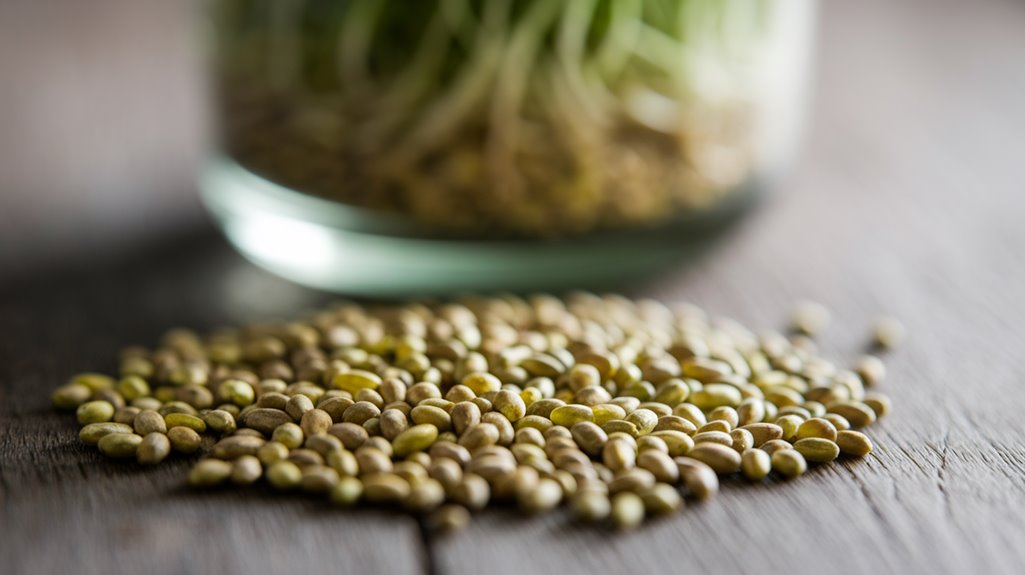
When it comes to sprouting, I often turn to alfalfa seeds because they’re packed with nutrients. These tiny seeds not only sprout quickly but also yield a rich source of vitamins A, C, E, and K, along with essential minerals like calcium, magnesium, and potassium.
The sprouting process enhances their digestibility and nutrient absorption. To sprout alfalfa seeds, I soak them in water for about 6 hours, then rinse and drain them. I keep them in a jar, ensuring they receive good airflow and light.
Within just 5 to 7 days, I can enjoy crunchy, flavorful sprouts. Incorporating these into my salads or sandwiches not only boosts nutrition but also adds a delightful texture. Alfalfa sprouts truly are a nutrient powerhouse!
Broccoli Seeds: Antioxidant-Rich Sprouts
Broccoli seeds are a fantastic choice for sprouting, offering a wealth of antioxidants that can enhance your diet. When I sprout these seeds, I’m excited to tap into their high levels of sulforaphane, a compound known for its cancer-fighting properties.
The sprouting process increases their nutrient bioavailability, making it easier for my body to absorb those beneficial compounds. I usually soak the seeds for a few hours and then rinse them twice daily, ensuring they stay moist but not waterlogged.
In just a few days, I’ve got crunchy, nutrient-dense sprouts ready to add to salads, sandwiches, or smoothies. Incorporating these sprouts into my meals not only boosts flavor but also enriches my overall health with their impressive antioxidant profile.
Radish Seeds: Zesty and Flavorful
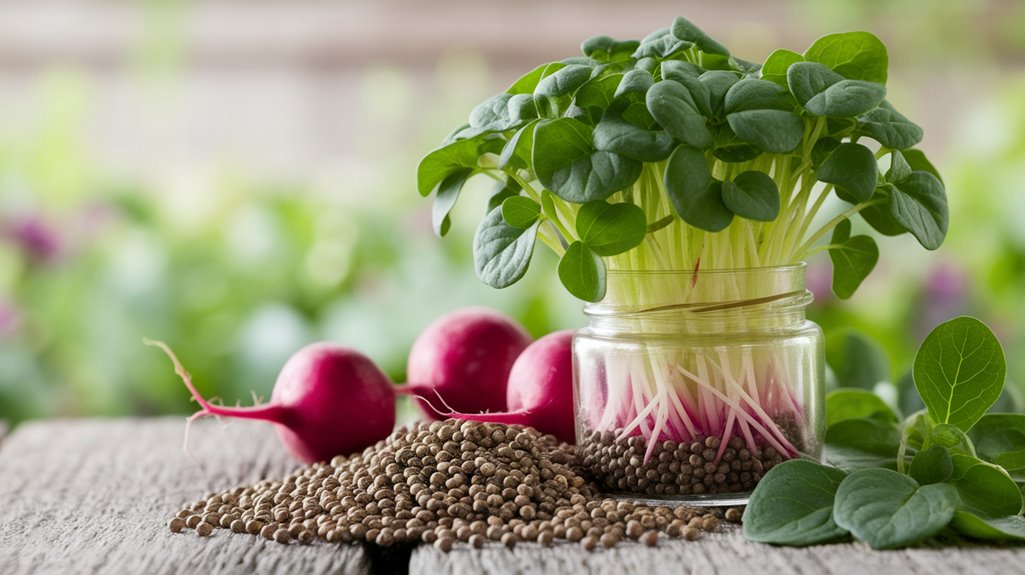
After enjoying the health benefits of broccoli sprouts, I find radish seeds to be a delightful addition to my sprouting repertoire.
Radish sprouts aren’t only zesty but also packed with nutrients. They typically germinate in just 4 to 6 days, making them a quick option for home sprouting. Their sharp, peppery flavor adds a refreshing kick to salads and sandwiches.
I use about 1-2 tablespoons of seeds in a jar with a mesh lid for optimal airflow. Rinsing them twice daily keeps them moist and encourages healthy growth.
Rich in vitamins A, C, and E, radish sprouts also provide antioxidants. Their vibrant color and bold taste make them a favorite in my kitchen, enhancing both flavor and nutrition effortlessly.
Mung Bean Seeds: Versatile and Crunchy
Although I often experiment with various seeds, mung bean seeds have become a staple in my sprouting routine due to their versatility and delightful crunch. These seeds sprout quickly, typically within 3 to 5 days, making them a great option for impatient gardeners. Mung beans are packed with nutrients, including vitamins A, C, and K, along with essential amino acids.
Here’s a quick comparison of their attributes:
| Attribute | Mung Bean Seeds |
|---|---|
| Sprouting Time | 3-5 days |
| Nutritional Value | High |
| Flavor | Mild and crunchy |
| Ideal Usage | Salads, wraps, soups |
| Growth Conditions | Warm, humid |
Incorporating them into meals adds texture and enhances the nutritional profile.
Lentil Seeds: Protein-Packed Sprouts
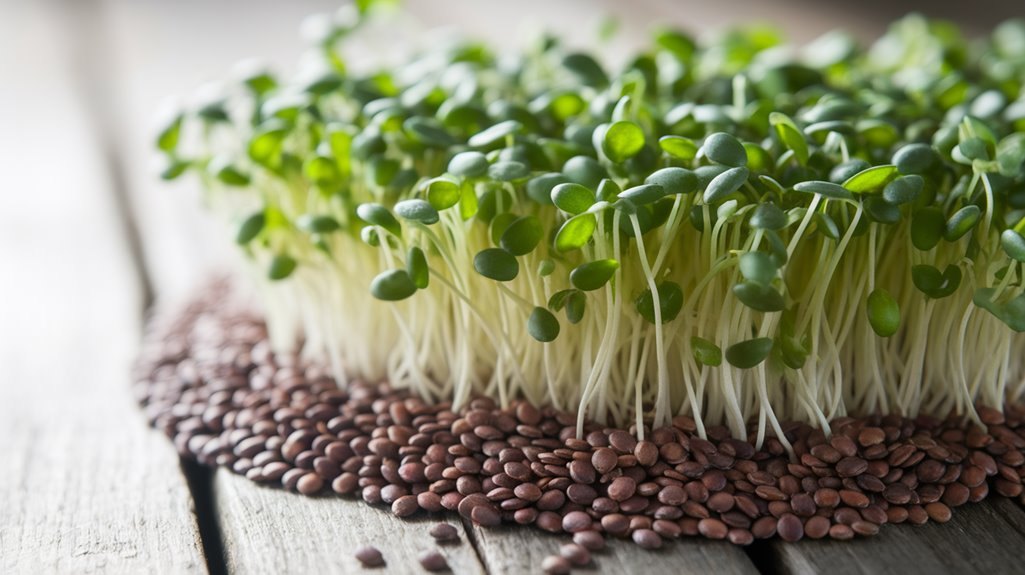
Lentil seeds are a powerhouse of nutrition, making them an excellent choice for those looking to boost their diet with protein-packed sprouts.
These tiny seeds pack an impressive punch, offering about 26 grams of protein per 100 grams when sprouted. They’re also rich in essential amino acids, particularly lysine, which is often limited in plant proteins.
Sprouting lentils enhances their digestibility and increases nutrient availability, including vitamins A, C, and some B vitamins.
To sprout lentils, simply soak them in water for about 8 hours, then drain and rinse. Place them in a jar or sprouter, keeping them moist and well-ventilated.
In just a few days, you’ll have fresh, crunchy sprouts ready to elevate your salads, sandwiches, or stir-fries!
Frequently Asked Questions
Conclusion
In conclusion, sprouting seeds like alfalfa, broccoli, radish, mung bean, and lentil offers a simple yet effective way to boost your nutrition at home. Each variety brings unique flavors and health benefits, making them a versatile addition to your diet. By following the right techniques for sprouting, you can enjoy fresh, crunchy sprouts packed with vitamins and minerals. So, why not give it a try? Your health and palate will thank you for it!

